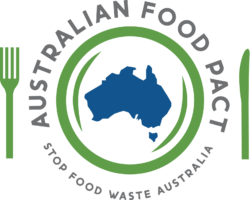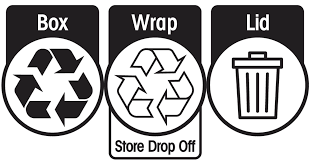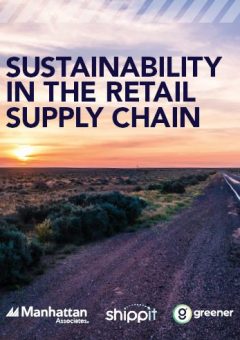Latest Sustainability News
Sustainability & Social Governance is one of the most active areas in retail
- Rolling bans
- National Packaging Targets
- Australasian Recycling Label
- Container deposit schemes
- Waste diversion
- Soft plastics
- Textiles
- E-waste
- Bag pact
- Food waste
- Batteries
- Modern Slavery
The NRA supports positive initiatives to improve environmental impact across the retail industry, however these changes must be:
- nationally consistent
- fair for all retailers regardless of size
- carefully considered and evidence-based
- commercially viable and realistic in a global market
- supported by retailer & consumer education
- supported by investment in Australian innovation & infrastructure
Key opportunities & challenges
Recycled content
Retailers and businesses are keen to use more recycled content in products and packaging, but domestic supply, infrastructure and standards are currently limited.
- Retailers and brand owners in Australia are keen to transition to recycled content where possible and safe to do so.

- However we need access to affordable, high quality materials made of recycled content here in Australia.
- Currently, most materials made from recycled content are significantly more expensive than those made from virgin content, and we need commercially viable solutions which customers will embrace.
- We also need traceability mechanisms and standards to ensure recycled content is clean, safe to use and verifiable.
- Standards must consider international supply chains so retailers can determine the compliance of international suppliers and also align with other Australian standards such as food safety.
- We support increased use of recycled content by governments through procurement policies as this would help build infrastructure and investment in the domestic market.
Food waste
Both businesses and consumers need to start implementing strategies to reduce food waste, but knowledge of this issue is very low in Australia, impacting incentives and ability to change.

- We support the Fight Food Waste campaign and the national target to halve food waste by 2030, however we express concern given the EU achieved 28% reduction in 10 years with more extensive organic recycling infrastructure in place.
- Many retailers and brand owners have been actively working on reducing food loss and waste across their supply chain for the past decade.
- We strongly support the need for greater consumer and industry education on food waste as the issues and solutions are complex and will take time and innovation. For example, much of the plastic packaging used in fresh produce has been reducing food waste through extended shelf life and transport protection. Alternatives need to balance food waste and packaging goals to create net positive outcomes.
- We strongly support Action Point 6.4 for local government to deliver FOGO collection to households and businesses though costs must be minimised to maintain equity.
- The NRA is actively working with Stop Food Waste to support industry-led action.
Packaging
Businesses are facing increased pressure to reduce plastic packaging, but some plastic has a purpose, is recyclable, and alternatives need to provide realistic not tokenistic solutions.
- Many retailers and brand owners are signatories to the Australian Packaging Covenant (APCO) and are actively working to achieve 100% of packaging to be reusable, recyclable or compostable by 2025.
- However consumers and government must understand that challenges are complex and must be practical, commercially-viable and safe.
- The NRA is working with APCO and related stakeholders to represent retailer perspectives and support practical, long-term solutions.
Single-Use Plastics
Single-use plastics in takeaway food are currently the subject of many discussions, industry research, and potential regulatory interventions, but alternatives remain limited, untested and challenging.

Business needs clear definitions of problematic, unnecessary single-use plastics, support to innovate, and time to trial options as many alternatives are still cutting-edge and untested. We need verifiable standards for retailers & brand owners to have confidence in ‘green’ alternatives. The optimal solutions need to create net public benefit and consider wide-reaching impacts.
Some challenges include:
- Consumer behaviour – While we all try to remember our reusable bags, straws, cutlery, containers and cups, the majority of customers still demand convenient, disposable options at point-of-sale. Retailers have also seen dramatic drops in customers bringing reusable items since the coronavirus pandemic.
- Maintaining food safety – Food and beverage items must be fit-for-purpose and retailers place food safety as the highest concern. Containers and tableware that contain hot or cold food must be fit-for-purpose eg. hot soup or curry in a takeaway container that won’t burn the customer or disintegrate before they eat it.
- Assessing long-term impacts – More research is needed to ensure that today’s solutions don’t create worse impacts on the environment in the future. For example, switching to paper or cotton alternatives can increase carbon impacts, greenhouse gas emissions and depletion of natural resources.
- Lack of public education – Unfortunately there are many myths and misleading claims. For example, most items made from compostable plastics must be processed in an industrial composting facility and create just as much harm if littered.
- Contradictory regulations – Retailers are keen to invest in sustainable solutions, but current bans and guidance vary at a federal, state and local government level, causing confusion, fragmented supply and increased cost.
The NRA are working with government at federal, state and local levels, environment groups and related stakeholders.
Recycling
Businesses are keen to ensure product and packaging waste is recyclable but are finding it difficult to design for recyclability when recycling processes vary in every council area and consumer knowledge is low.

- Recent research suggests that a high proportion of consumers still sort their recycling incorrectly, increasing contamination and the amount diverted to landfill.
- We support the national target to achieve 70% of Australia’s plastic packaging to be recycled or composted by 2025 but given the current plastic recycling rate is at 16%, essential steps are necessary:
- Widespread adoption of the Australasian Recycling Label (ARL) to ensure consumers have consistent instructions on how to dispose of their waste
- National mandated standards for kerbside collection programs so consumers gain confidence in sorting waste and that their waste is being recycled
- Expand and invest in opportunities to recycle soft plastics
- Time to innovate tested alternatives to plastic that don’t create worse impacts
- Widespread consumer and business education programs
- Support markets for goods that avoid waste or contain recycled materials
Product stewardship
Product stewardship schemes are increasing recovery of particular items but an unconsolidated model (one scheme per product type) is unsustainable for business and impractical for consumers.
- Product stewardship schemes must be practical, cost-effective and feasible without creating significant burden on businesses and significant costs to consumers.
- It is not realistic to expect consumers to return every product to a different store or designated point, and it is not practical for retailer to take back stock into retail stores as space, hygiene and logistical issues are still unresolved.
- We are concerned that the model of ‘one scheme per product type’ is not viable in the long-term.
- Some innovation in reverse logistics and digital platforms are promising, but work needs to be done to harmonise and resolve product stewardship challenges.
Consumer and business education
Businesses are individually investing time and resources into sustainable change and many consumers are becoming aware of their ability to create impact, but we all need consistent, practical information, resources and support.
- Both consumers and businesses need more consistent and comprehensive data, information and resources to tackle waste.
- eg. Recent research indicates that most people do not know the difference between ‘degradable’, ‘biodegradable’, ‘home compostable’ and ‘commercially compostable’.
- Many businesses, especially small or independent businesses, have little time or money to spend researching such complex issues and solutions.
- Retailers are concerned that education of the consumer will be left to retailers and their teams. Government-supported consumer education programs at a state and national level are essential.
- There needs to be comprehensive, nationally-consistent support and resources to help businesses and consumers make informed decisions.
More info, contact: sustainability@nra.net.au
What we do
The National Retail Association Policy Team exists to help retail businesses succeed and grow within an ever-changing regulatory environment.
Our team works with a wide range of industry stakeholders – retailers, government, law enforcement, regulatory bodies, shopping centres, community groups, supporting associations and many more – to develop industry-wide policy platforms or positions on issues of importance to the Australian retail sector.
We work with all retailers across the retail and foodservice industry – regardless of size, category or business model – from the largest department chains to family-run pizza shops. Similar issues affect all retailers every day – such as retail crime, product safety and environmental legislation – and we all benefit from sharing intelligence and real-world experience.
We work actively with governments at international, federal, state and local levels to ensure the interests and needs of the Australian retail and services sectors are protected and promoted. Rather than running from inevitable regulatory change, we provide a bridge between retailers and government – facilitating the exchange of ideas and information which ultimately leads to more informed, commercially-aware outcomes for all parties.
We place real-world insight above all else, so we actively engage with retailers in stores, strip precincts and shopping centres.
We tackle the issues you can’t tackle alone.

